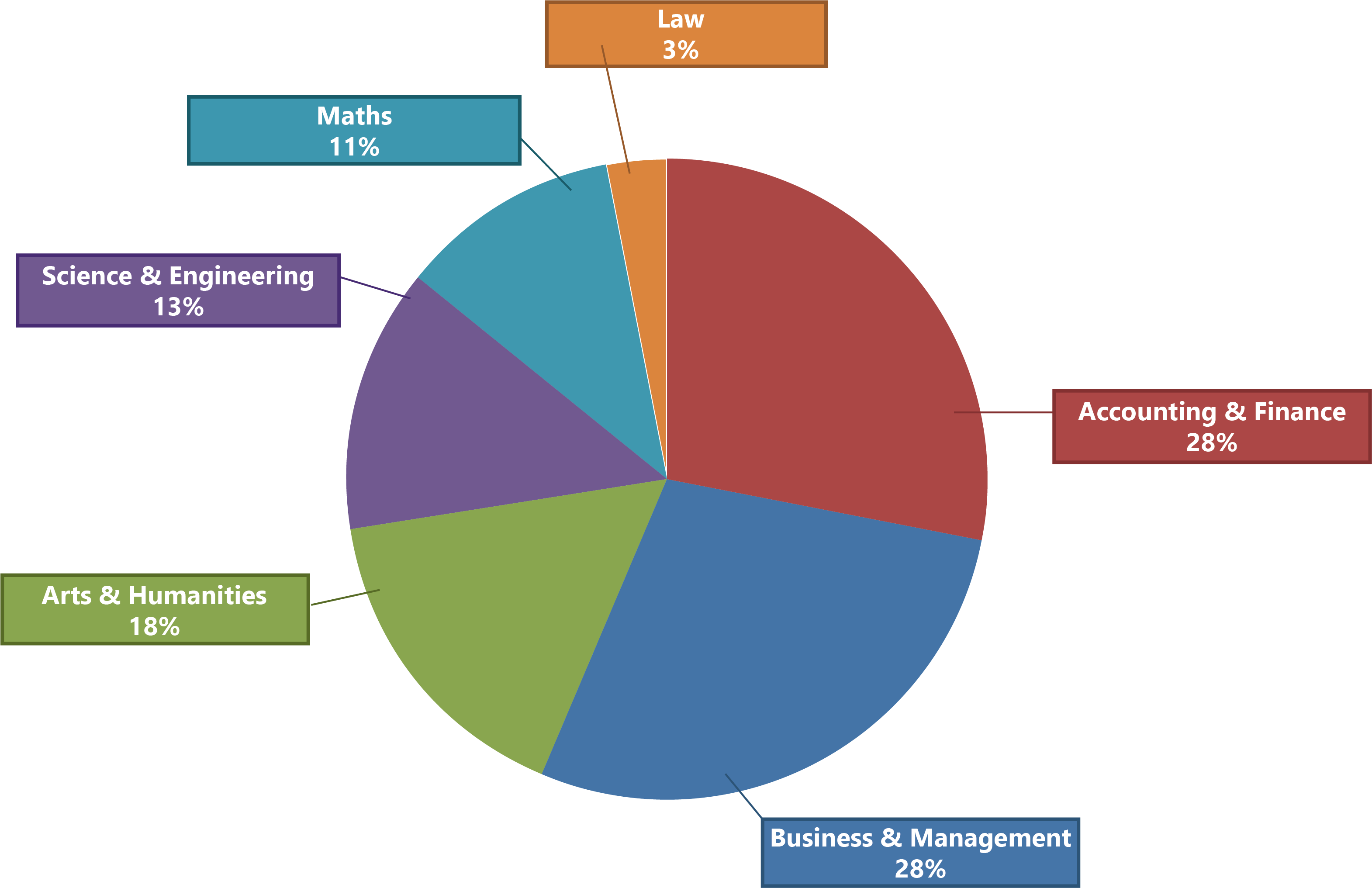Businesses and organisations need people with varied backgrounds, interests and knowledge to help them become as successful as possible. There are many ways to become a chartered accountant, so whether you’re a graduate, a school leaver or a professional looking to move industry, there is a route for you.
It is quite a common belief that you need an accountancy or finance degree to become an accountant, but this is not the case. In fact, a majority of accountancy firms open up their graduate schemes to all disciplines. So even if you don’t have a mathematical or finance degree, you can still apply to an accountancy graduate scheme.
However, some accountancy firms require you to have a degree in a finance based subject, such as accountancy, finance, economics or business studies, but this tends to be the exception, rather than the rule.
Proficiency in maths is just one requirement to become an accountant, with employers valuing softer skills including communication and team work which is why so many arts and humanities students find their place in the accountancy profession.
Science and engineering graduates have also found that they can apply the skills they learnt in their degree in the wider context of the accountancy profession.
As you can see in the chart below, the accountancy profession consists of people from all degree backgrounds.

What qualifications do accountancy employers look for?
Degree requirements vary from employer to employer, with some looking for a 2:1 in any discipline, to a 2:2 or some requiring you to have a numerate degree such as economics or accounting. It does really depend on the individual employer. Check out our latest jobs here to see details for what each company requires.
Graduates
For all entry routes, you will need to apply directly to an employer. As well as having a strong academic background, they will be looking for candidates who stand out from the crowd and can bring something extra to their organisation. Among other things, you’ll need to show a genuine interest in, and commitment to, your chosen career path.
Entry requirements will vary depending on the employer and the programme you are following. Generally, employers will look for a minimum of a B in GCSE Maths and English and 280+ UCAS points at A levels (or equivalent).
You don’t need a degree in accounting, finance or business to study for a qualification in accounting. While the subject isn’t important, you will need to have a strong academic record. Entry requirements differ between employers, but, in general they’ll be seeking at least a 2:1 and everyone who undertakes an accountancy qualification must have at least two A levels and three GCSE passes (or equivalent).
School leavers
If you want to start work straight away, you can chose from a higher apprenticeship or a school leaver programme. Likewise, if you want to go to university, you can do a degree followed by the qualification, or combine both through and employer-affiliated degree for the qualification.
The requirements for a school leaver schemes differ depending on the employer, however they often require at least a grade B in maths at GCSE level. However, this does differ from employer to employer so we recommend researching a few companies to see what they require of their school leavers.
In conclusion, you can train to become an accountant without a maths A-Level. However, you will need at least a B at GCSE and many employers require a minimum number of UCAS points, as well as a 2.2 degree for graduate schemes.
Find out more about the skills needed to become a chartered accountant by reading the ‘Essential skills to become a successful Chartered Accountant’ article here.


